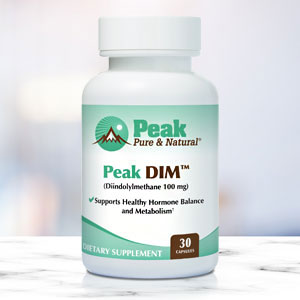Get Easy Health Digest™ in your inbox and don’t miss a thing when you subscribe today. Plus, get the free bonus report, Mother Nature’s Tips, Tricks and Remedies for Cholesterol, Blood Pressure & Blood Sugar as my way of saying welcome to the community!
Signs you’re the 1 in 3 Americans with a protein deficiency

Diets focusing on getting good protein and fewer carbs are all the rage these days. In fact, in my house alone, I’m on Keto and my husband has gone Paleo.
And, we’re not alone…
Protein may have never been more popular as evidenced by the grocery shelves packed with everything from protein powders and drinks to Greek yogurt and protein-packed bars and cereals.
Yet, according to a new study, about a third of us are still missing the mark when it comes to protein…
Shortcutting protein shortcuts your health
Using data from the National Health and Nutrition Examination Survey (NHANES), researchers from The Ohio State University and Abbott compared protein intake in relation to diet patterns and overall health in 11,680 adults aged 51 and older.
And, the study gives us all big reasons to focus on our protein:
- At least 1 in 3 lacking – The research revealed that more than 1 in 3 Americans age 50 and up aren’t meeting their daily recommended protein intake
- Poor diet – And, not hitting those recommended protein levels had major negative impacts on the health of their diet. The scientist found that adults who weren’t getting enough protein also ate less healthy foods like greens, beans, dairy, and seafood, and weren’t getting the other important vitamins and minerals like choline, vitamin C, zinc and vitamin D they needed.
- Severe shortages – And, of those who weren’t consuming enough protein, a full one third were majorly missing the mark, shorting themselves by up to 30 grams of protein per day. To put this in perspective, if you weigh 160 pounds and need at least 58 grams of protein, that 30-gram shortage is more than half of your daily needs.
- Less energy and poor strength – People who weren’t getting enough protein were also more likely to experience real physical problems, like having difficulty getting into our out of bed and being forced to spend long periods each day sitting due to fatigue.
- Skipping meals is serious business – More than 40 percent of adults who did not meet the protein recommendation ate fewer than three meals per day signaling that meal skipping might be a big part of the problem.
”The power of protein is sometimes underestimated,” said Abby Sauer, M.P.H., R.D., a registered dietitian at Abbott and healthy aging expert. “As the building blocks of our muscles, protein plays a role in every aspect of our lives — from providing energy to run 5 km, to giving us the strength to get out of a hospital bed. There are simple steps adults can take — like including protein at each meal — that will have a long-lasting impact on overall health.”
Timing matters
How can you tell if you’re not getting enough protein? You may experience stress fractures. Your hair and nails look brittle. You’re losing weight, feel weak and get sick easily and often.
Clearly getting enough protein must be a priority, but you also need to consider your timing. That’s because multiple studies have shown that spreading your protein consumption across your day (even as a bedtime snack) can have a positive impact on your muscle strength.
Luckily, boosting your protein is simple with these tricks:
- Skip the carbs – Instead of snacking on popcorn or pretzels, grab a handful of nuts or opt for string cheese.
- Top your salads – A green salad is a great addition to any meal but it’s even better when you amp up its protein power with diced chicken, beans or sliced almonds.
- Check your plate – You need about 25 – 30 grams of protein per meal so be sure your plate includes high-protein options like eggs, chicken, seafood, and beans.
- Blend up your protein power – A great option for getting more protein each day are protein smoothies. Here are the protein powders Dr. Michael Cutler, a family physician with over 20 years of experience, recommends.
And, remember…
Once you’re past 65, you may need up to two times the amount of protein you did when you were younger, so adding an extra protein snack in your day is the way to go to make sure that you’re not one of the third of people missing the mark on protein.
Editor’s note: Are you feeling unusually tired? You may think this is normal aging, but the problem could be your master hormone. When it’s not working, your risk of age-related diseases skyrockets. To reset what many call “the trigger for all disease” and live better, longer, click here to discover The Insulin Factor: How to Repair Your Body’s Master Controller and Conquer Chronic Disease!
Sources:













